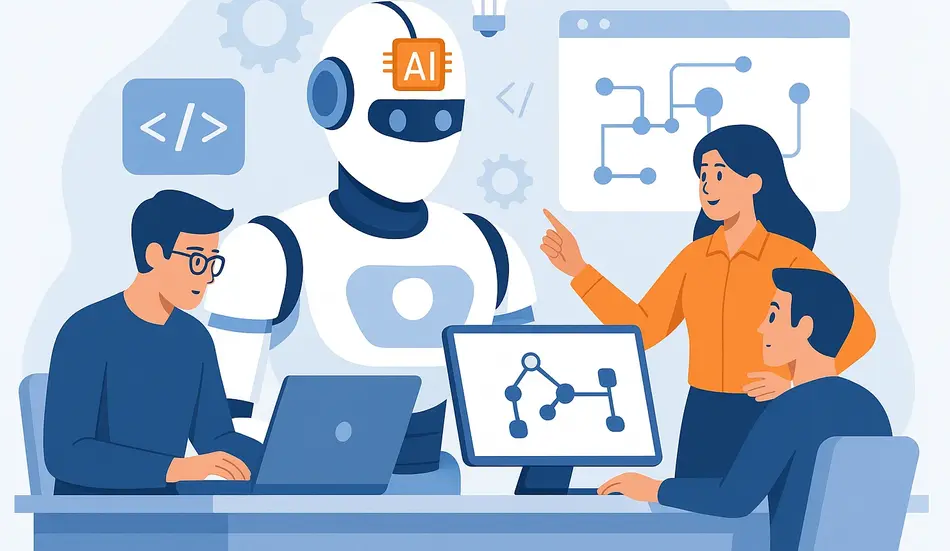The Rise and Fall of Software Engineering: From Golden Age to Current Reality
Software engineering has long been considered one of the most lucrative and stable career paths in the tech industry. The golden age, marked by high demand, generous salaries, and a booming startup culture, saw software engineers at the forefront of innovation. However, the landscape is rapidly shifting as new forces reshape the industry.
Table of Contents
The AI Revolution in Programming: Automation Statistics and Major Company Impact
Artificial Intelligence (AI) and automation are fundamentally changing how software is developed. According to recent studies, up to 40% of code in some organizations is now generated or reviewed by AI tools. Major companies like Microsoft, Google, and Amazon are investing heavily in AI-driven development platforms, reducing the need for large engineering teams and accelerating product cycles.
The Triple Threat: AI, Outsourcing, and Immigration Policies
Tech careers are facing a triple threat. First, AI is automating routine coding tasks, reducing the demand for entry-level and mid-level engineers. Second, outsourcing continues to shift jobs to lower-cost regions. Third, changing immigration policies in key markets like the US and UK are affecting the availability and movement of tech talent, further complicating the job market.
The New Landscape: Emerging Opportunities for AI Specialists and Hybrid Skill Sets
While traditional software engineering roles are declining, new opportunities are emerging for AI specialists, data scientists, and professionals with hybrid skill sets that combine technical expertise with business, design, or domain knowledge. Roles in AI ethics, machine learning operations (MLOps), and AI product management are in high demand.
The End of Software Engineers?
AI and automation are transforming the tech industry, redefining the roles of software engineers and developers. Employers who adapt now can secure forward-thinking talent ready to thrive in the age of intelligent automation. Post your job on WhatJobs today and connect with candidates shaping the future of technology.
Post a Job Free for 30 Days →Painful Transition: Job Market Challenges and Skill Gap Issues
The transition is not without pain. Many experienced engineers are finding their skills outdated, while new graduates face a highly competitive market. The skill gap is widening, with employers seeking candidates who can adapt quickly to new technologies and methodologies.
Future Projections: Opportunities in Cybersecurity, Data Privacy, and More
Despite the challenges, the future holds promise in emerging fields. Cybersecurity, data privacy, and AI safety are projected to see significant growth as organizations prioritize secure and ethical technology deployment. Upskilling and continuous learning will be essential for those looking to pivot into these areas.
Strategic Recommendations for Tech Professionals
- Current Developers: Invest in learning AI, cloud computing, and cybersecurity. Embrace continuous learning and adaptability.
- Aspiring Tech Workers: Focus on hybrid skills—combine coding with business, design, or data analysis.
- Career Changers: Leverage transferable skills and seek certifications in high-growth areas like AI and cybersecurity.
FAQ: The Future of Software Engineering
Will software engineering become obsolete?
While traditional roles may decline, new opportunities will arise in AI, data, and security fields.
What skills are most valuable for the future?
AI, machine learning, cybersecurity, and hybrid technical-business skills are increasingly important.
How can engineers adapt to industry changes?
Continuous learning, upskilling, and embracing new technologies are key strategies.
Are there still opportunities for entry-level engineers?
Yes, but competition is fierce. Specializing in emerging fields and gaining practical experience can help.
In summary, the tech industry is undergoing a profound transformation. By staying informed, adaptable, and proactive, tech professionals can navigate these changes and seize new opportunities in the evolving landscape.




